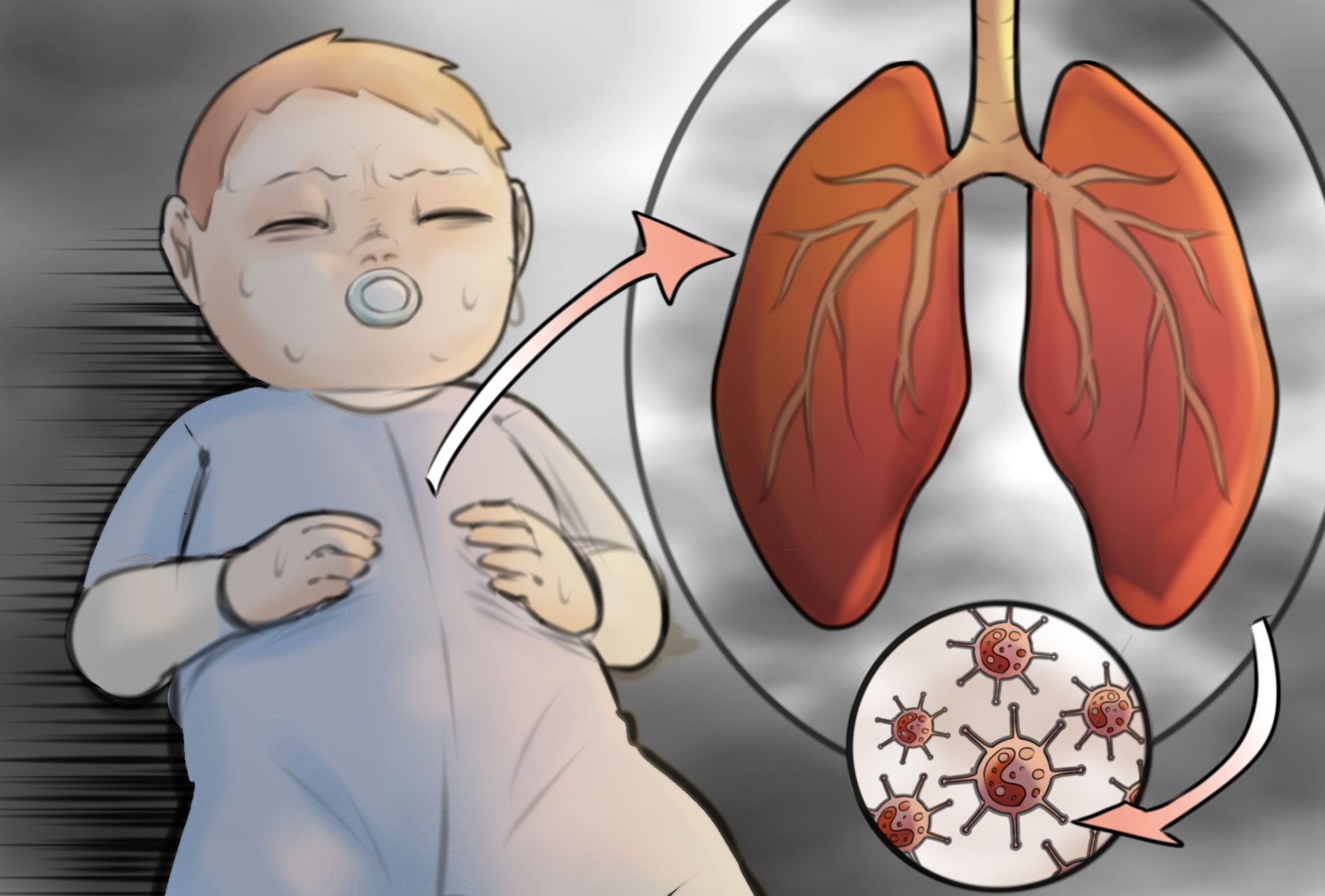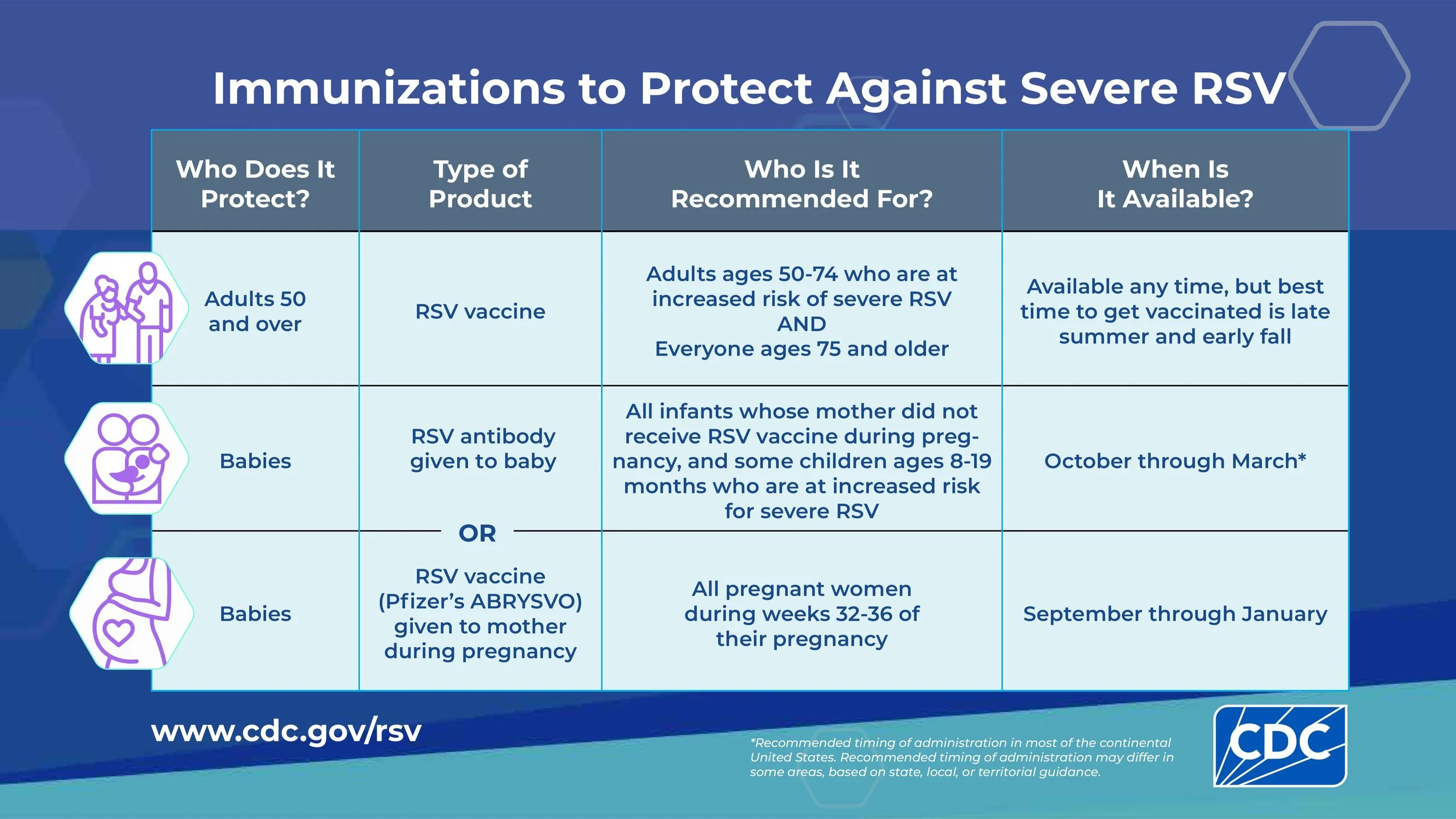Respiratory Syncytial Virus (RSV)
What is RSV?
Respiratory Syncytial Virus (RSV) is a common germ that can make you sick, kind of like a cold. Most people feel better in about one or two weeks, but for babies, especially who are premature or have health problems, it can be severe and life-threatening. Older adults and people with weak immune systems can also have a tough time; they can get pneumonia and have trouble breathing because of RSV.
RSV Immunizations
In 2022, the FDA approved several new shots for babies, pregnant women, and older adults to prevent serious illness from RSV. This is a good summary from 2024 about the safety and effectiveness of those shots (summary in Spanish.) If you are not likely to get severely sick, you do not need a shot, but can do the everyday things listed here to help stop RSV from spreading.
For adults in the United States, there are three approved vaccines: Arexvy (RSVPreF3) or Abrysvo (RSVpreF), and mResvia (mRNA RSV.) People 75 and older, and people 50 through 74 who are at risk of severe RSV, should get one dose of RSV vaccine in their lifetime.
To protect infants from RSV, babies can get a dose of monoclonal antibody or pregnant people can get an RSV vaccine. Monocolonal antibodies protect infants younger than 8 months old from RSV, as well as some toddlers who are at increased risk for severe disease. There are two monocolonal antibodies, Beyfortus (nirsevimab) and Enflonsia (clesrovimab.) People who are 32 through 36 weeks pregnant can get a dose of Abrysvo vaccine during the RSV season. They will pass the vaccine’s protection onto the baby once it is born.
Here’s where to get RSV shots in the Columbia River Gorge:
-
Anyone 75 or older, and people over 50 with an immunocompromising condition, can get RSV vaccines from any of these pharmacies:
Walgreens in Hood River or The Dalles
Fred Meyer in The Dalles
Safeway in The Dalles or Hood River
Walmart in Hood River
Murray’s Pharmacy in Condon
Adults can also get an RSV vaccine at their regular doctor’s office. These clinics confirmed they carry RSV vaccine:
-
Pregnant people can get an RSV vaccine at their OB/GYN office or at most pharmacies.
These clinics said they carry RSV vaccine for people who get prenatal care at their clinic:
These pharmacies said they will vaccinate pregnant people for RSV:
Walgreens in The Dalles or Hood River
Fred Meyer in The Dalles
Safeway in Hood River and The Dalles
Murray’s Pharmacy in Condon
Walmart in The Dalles
-
Infants who need RSV monoclonal antibody can get it at many clinics.
We at NCPHD have RSV monoclonal antibody for any eligible infant. Call us at 541-506-2600 to schedule an appointment.
These clinics said they stock RSV monoclonal antibody for their pediatric patients:
Adventist Health Columbia Gorge Clinics (formerly MCMC)
If your child sees a doctor at Providence Clinics in Hood River, they will order it when you request it for your baby.
More RSV info here.



